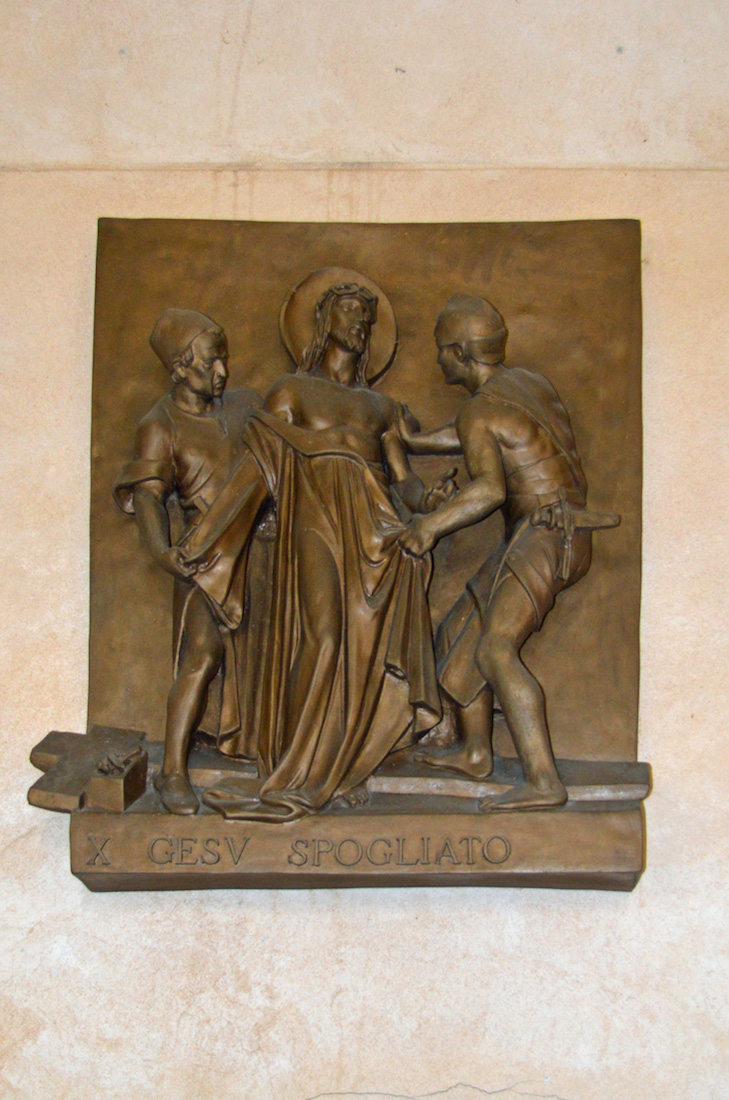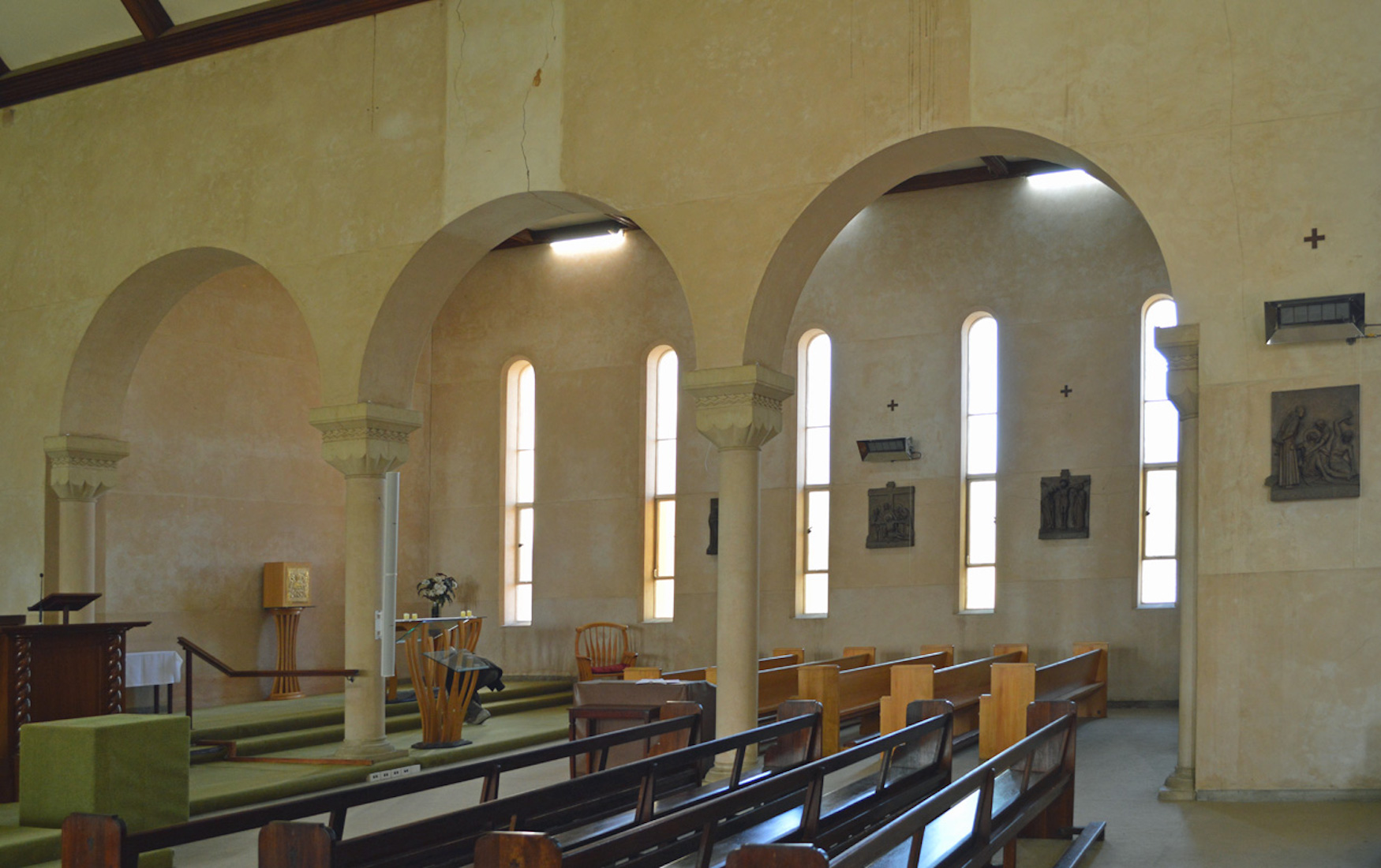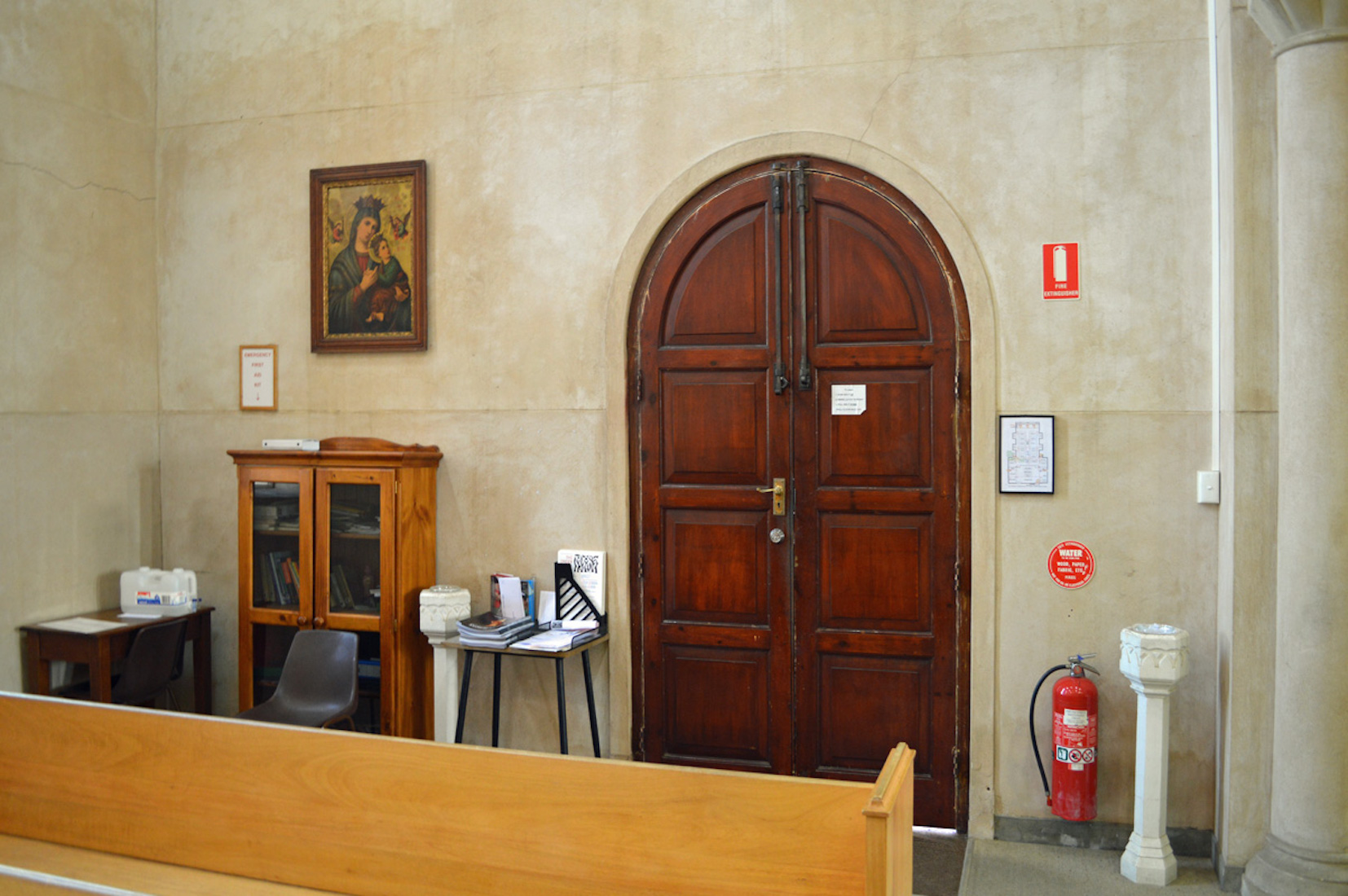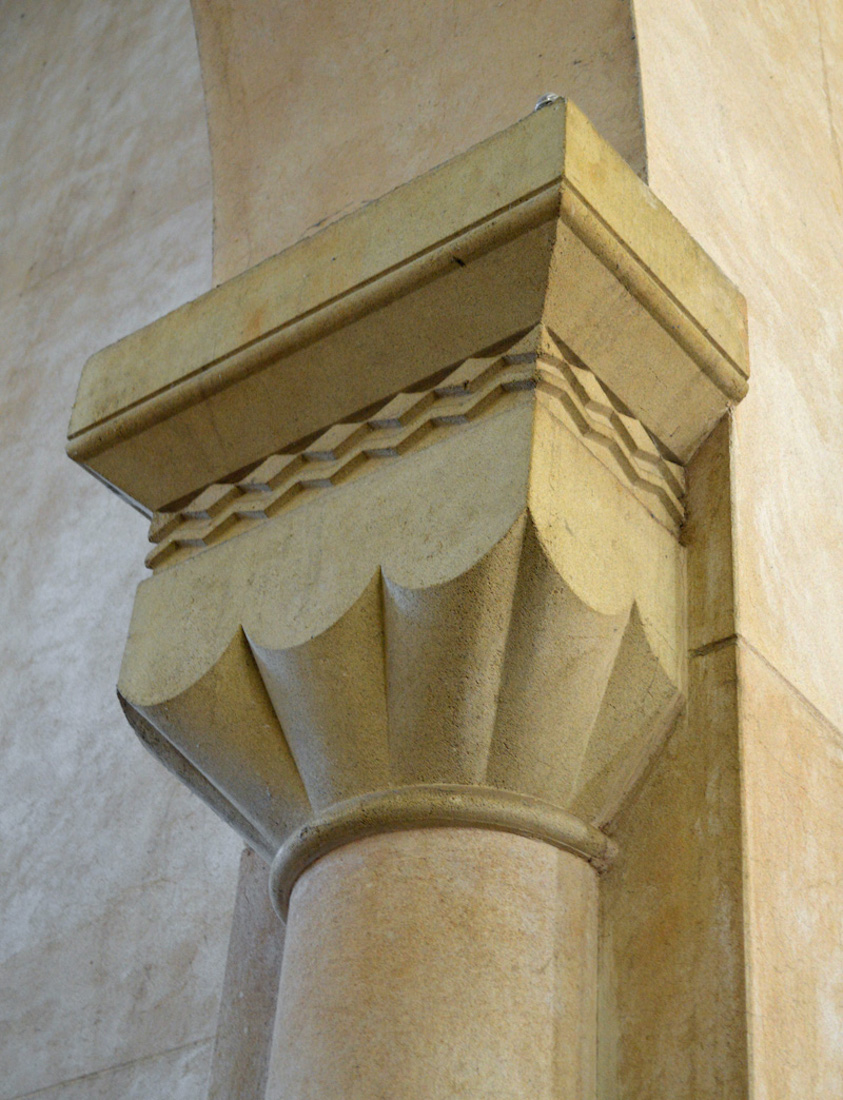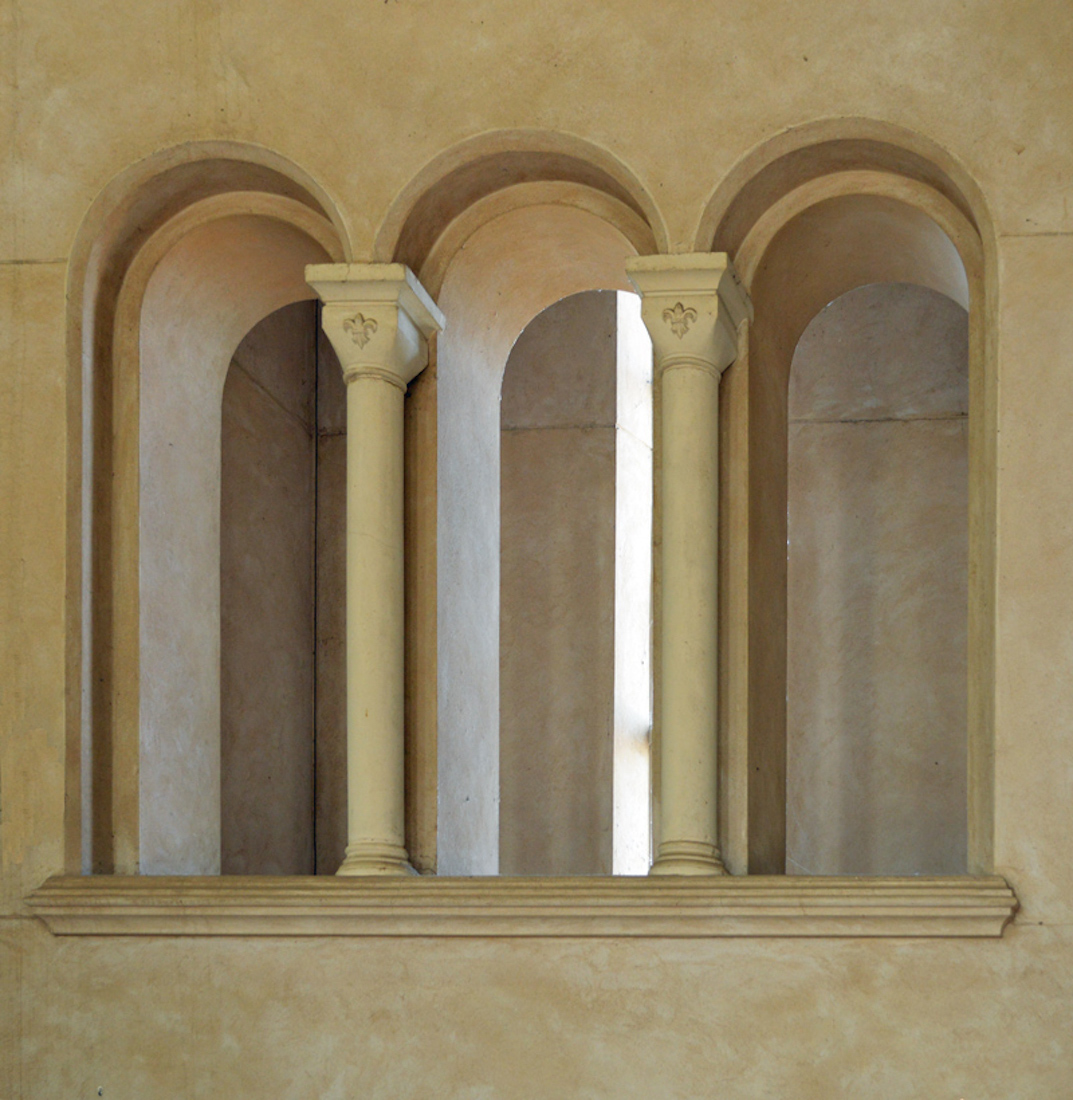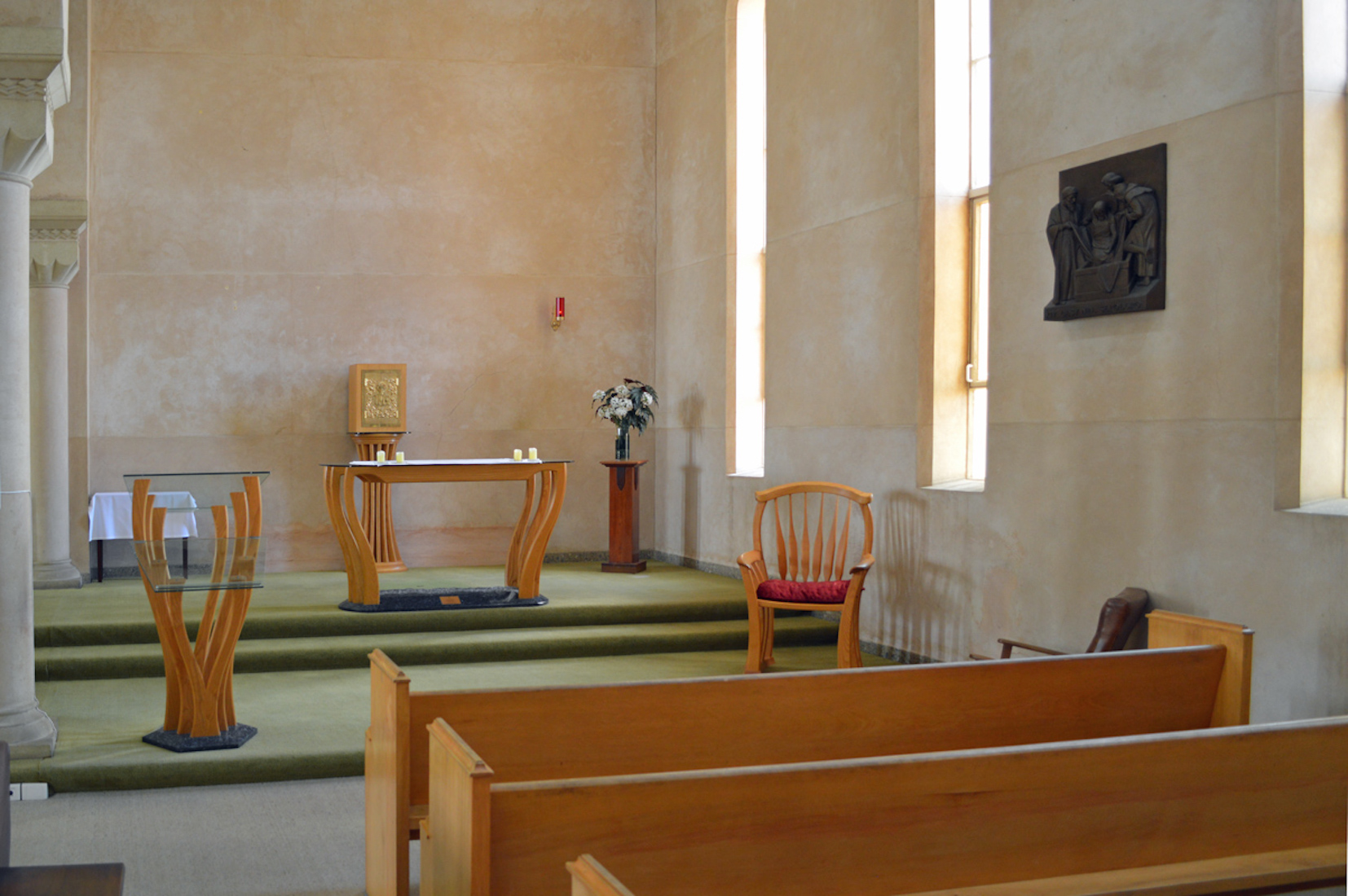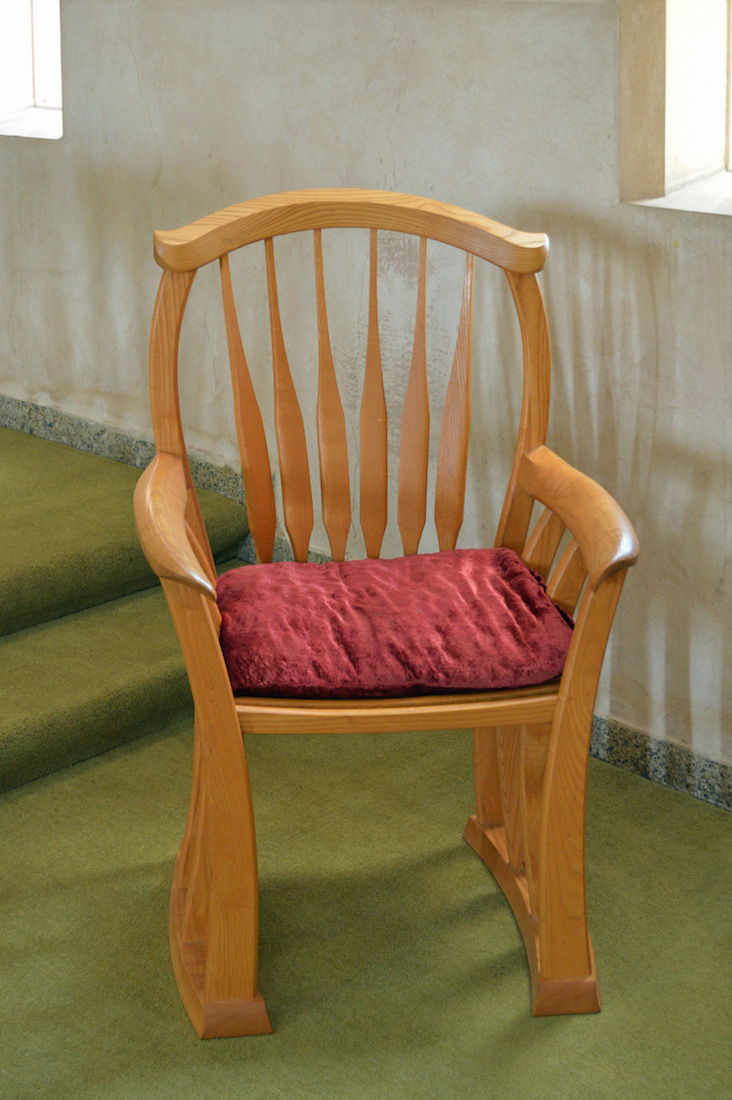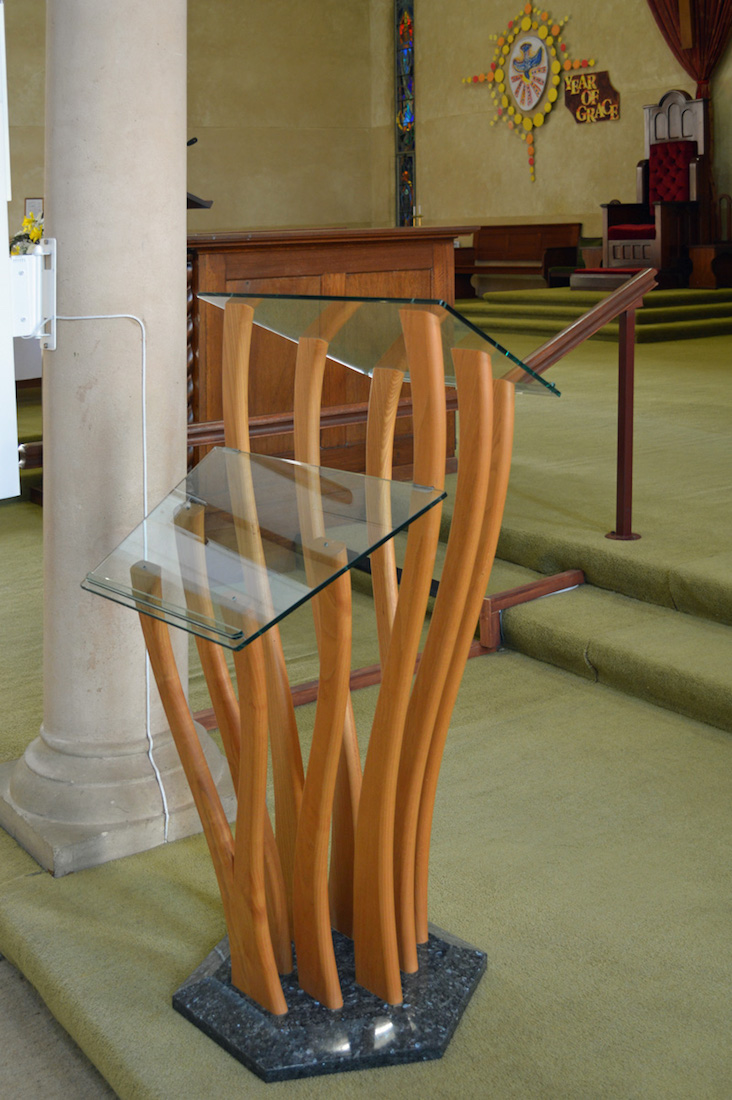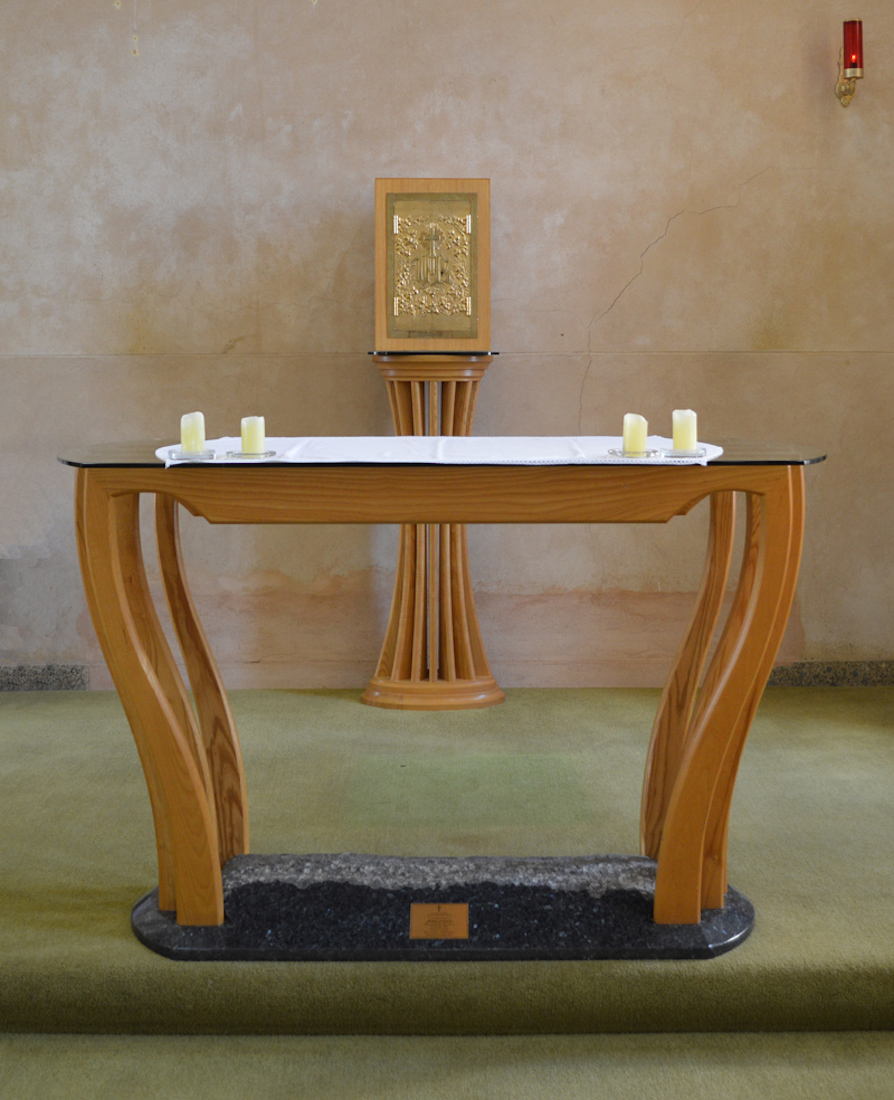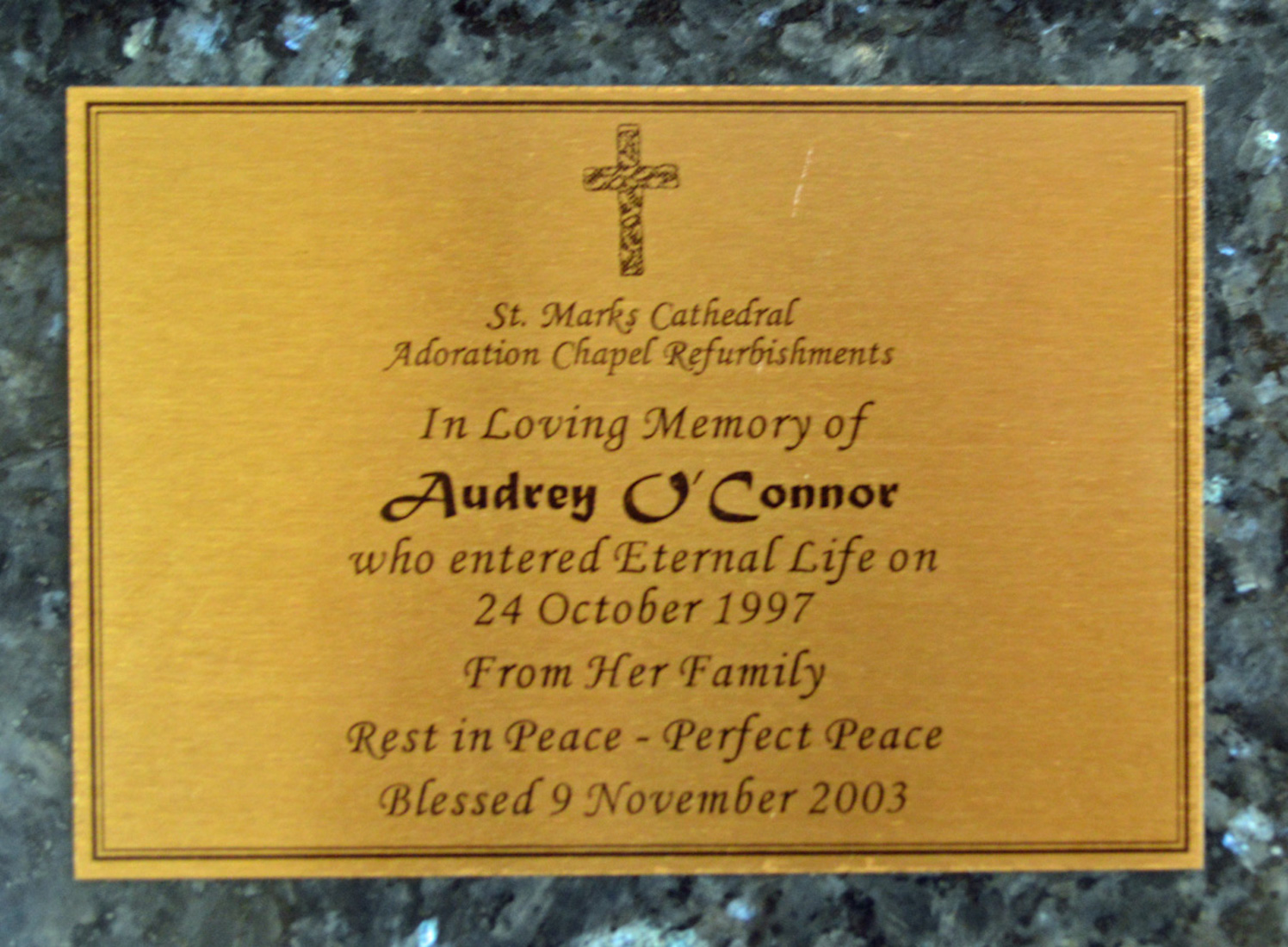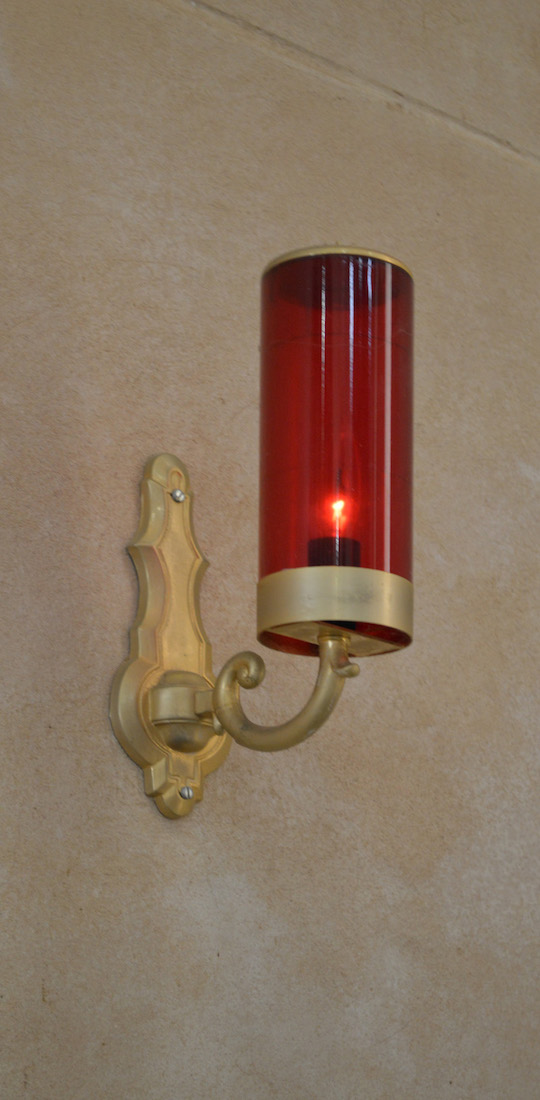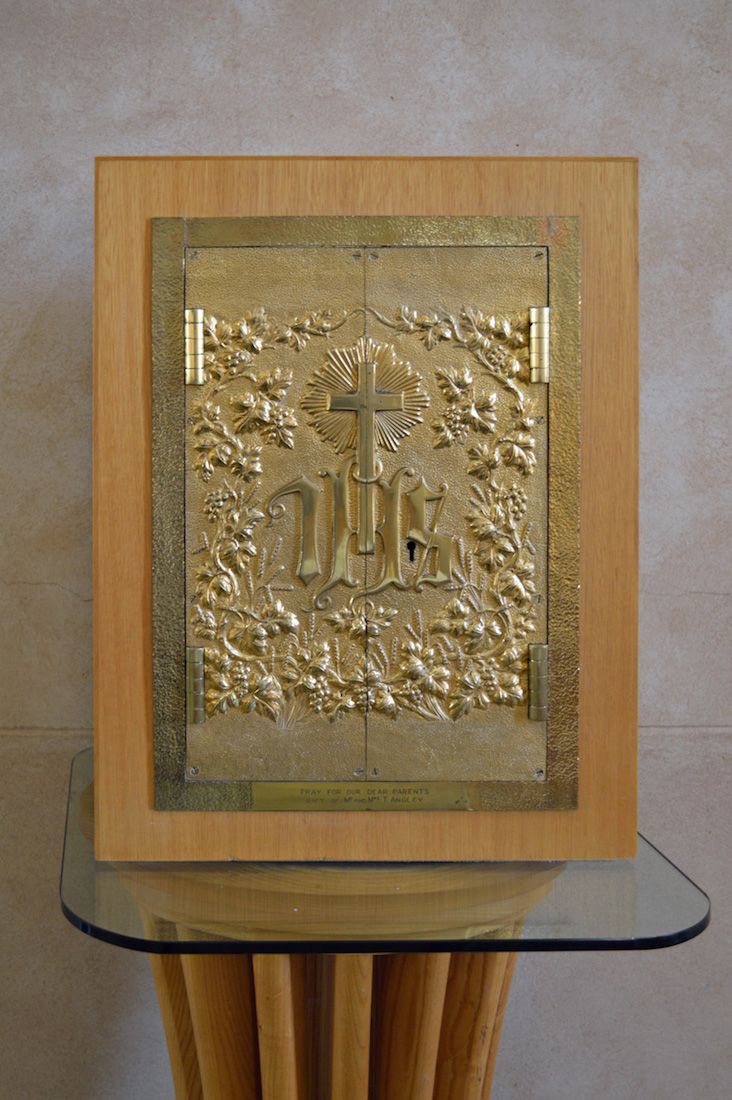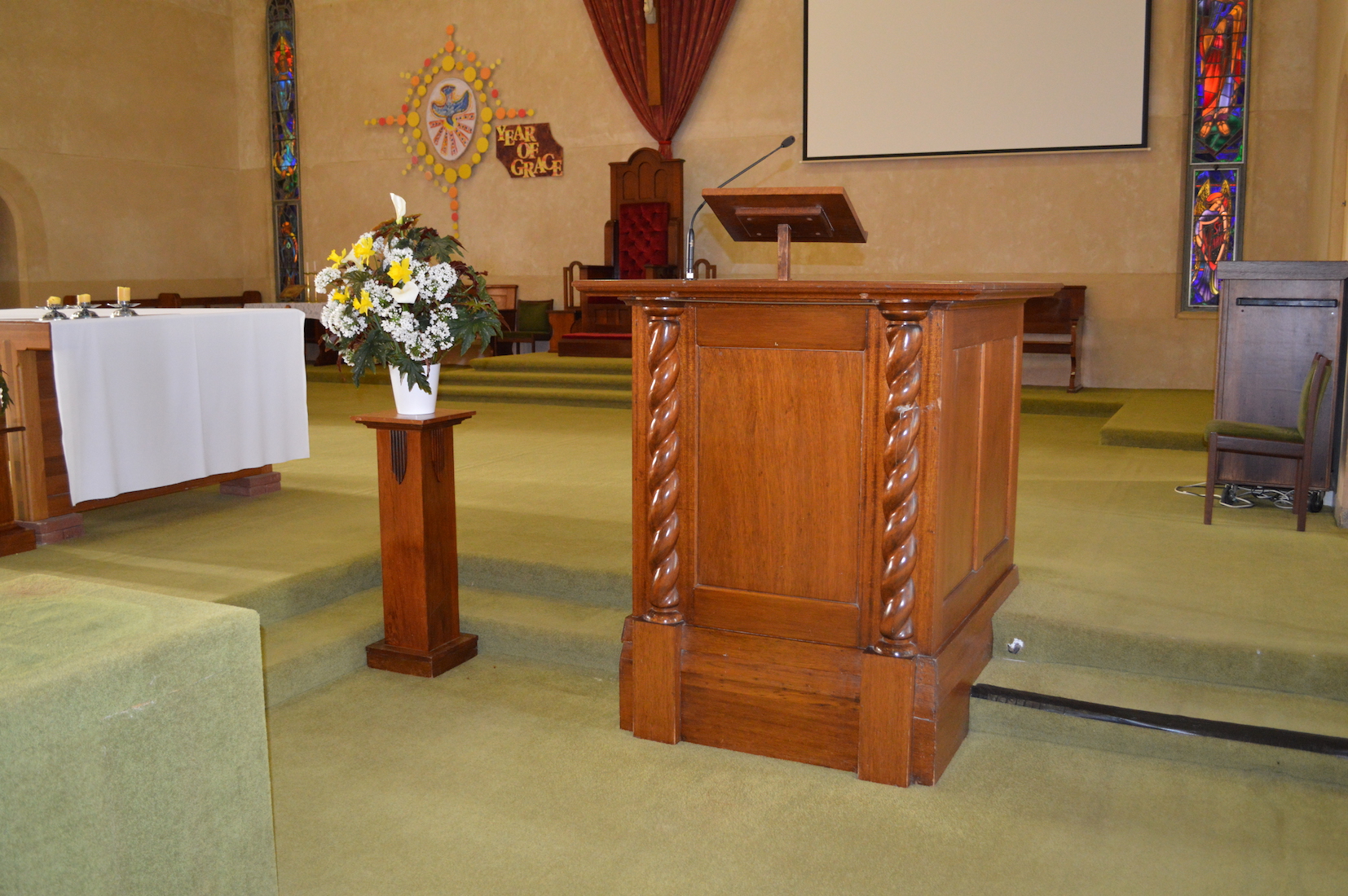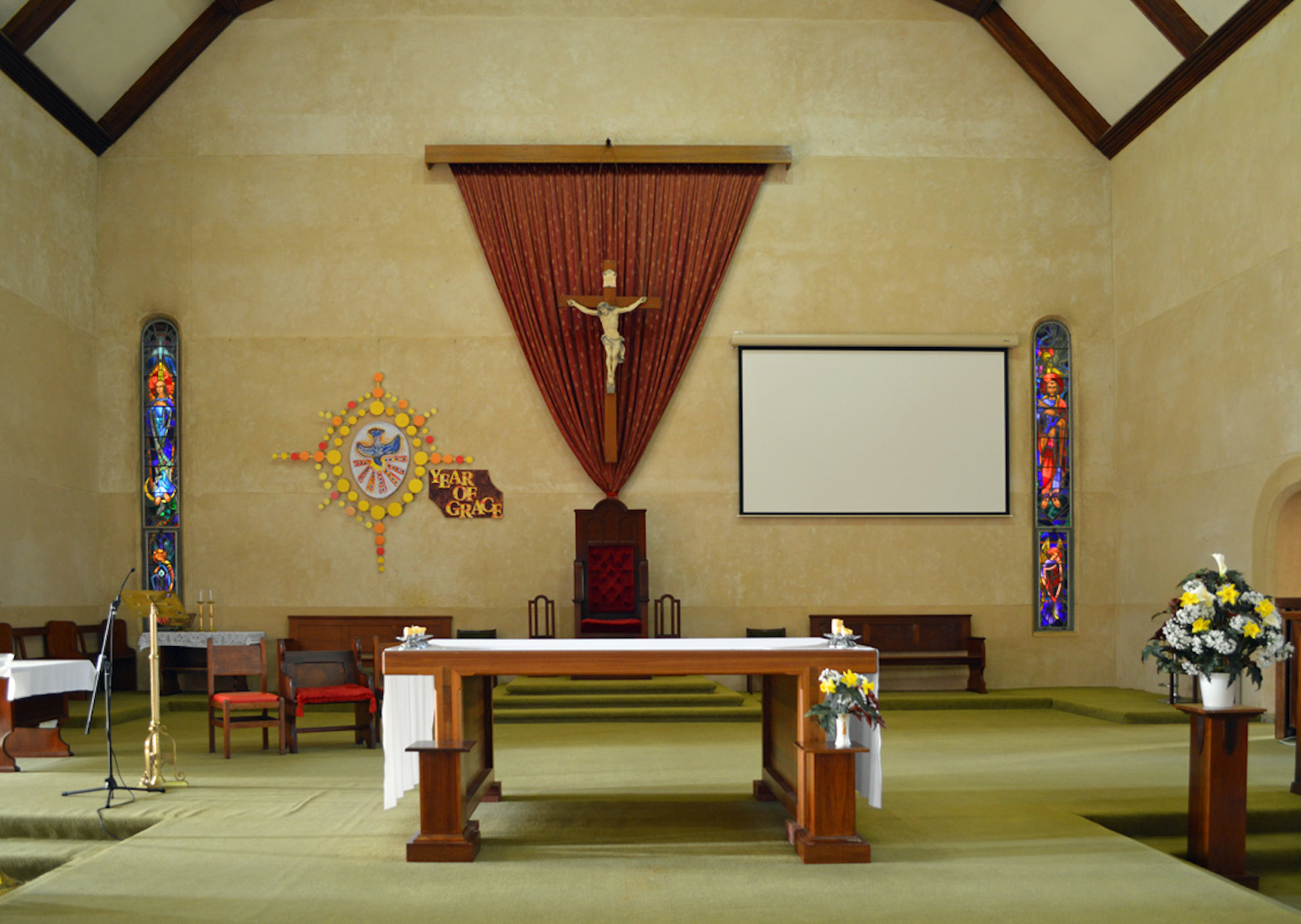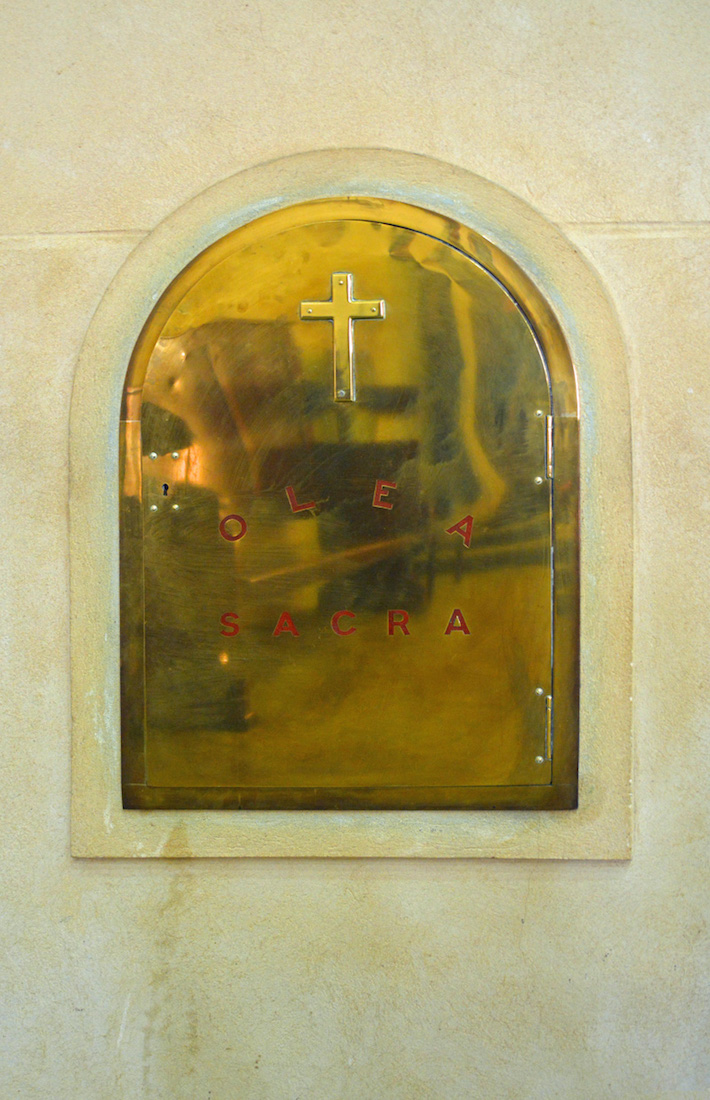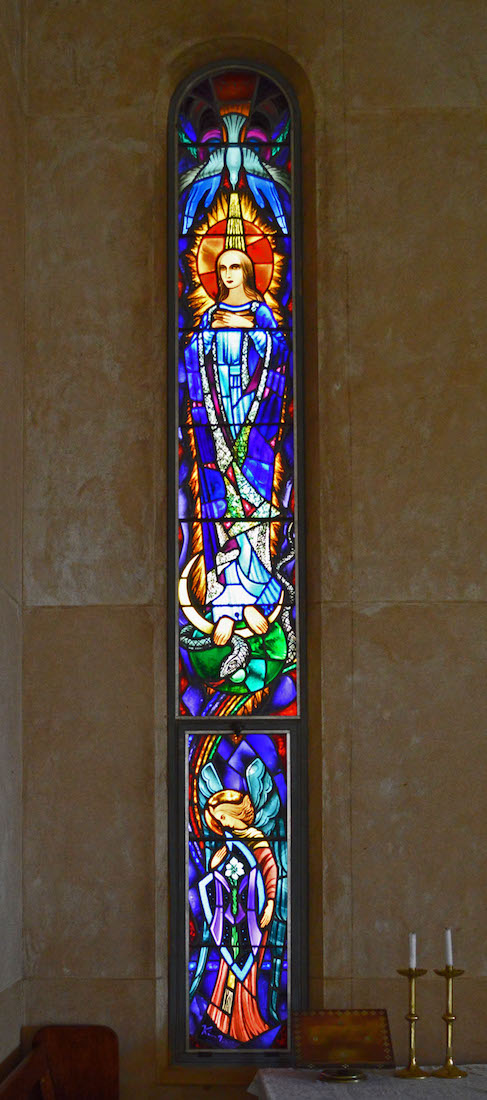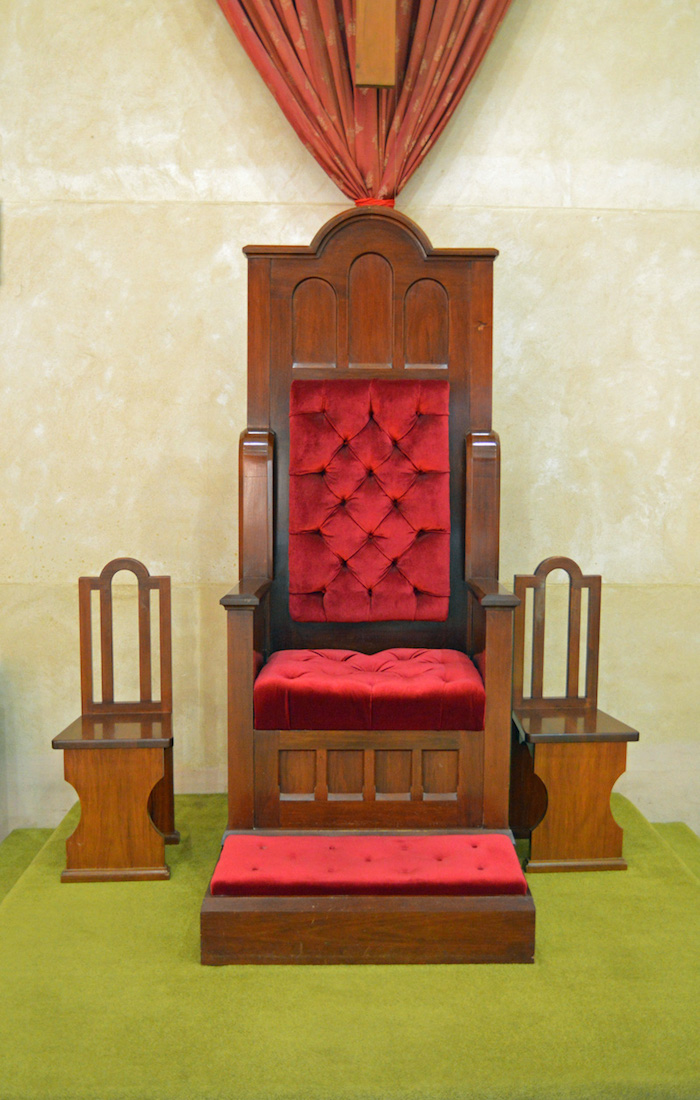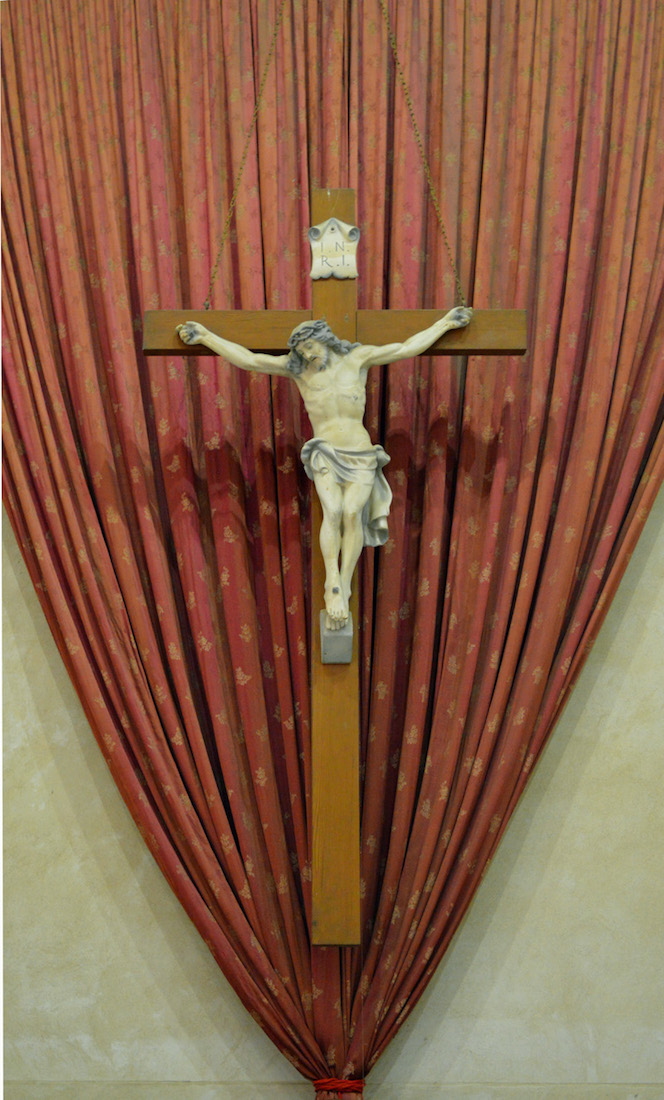23. TRANSEPT WEST WALL
There is a Cathedral entry door in the West wall of the South transept, along with a certain amount of clutter! However, our eyes are drawn to an interesting framed icon.
24. ICON
This is ‘Our Lady of Perpetual Succour’ (Help). The esteemed original icon has been in Rome since 1499, and is permanently enshrined in the church of Sant’Alfonso di Liguori in the Esquiline Hill. The letters ‘MP OY’ stand for ‘Mother of God’, and the letters ‘IC XC’ stand for ‘Jesus Christ’.
25. CAPITAL
St Mark’s Cathedral contains little in the way of ornate decoration. The columns of the arches leading through to the transepts have some ornamentation on their capitals.
26. COLONADE
Further, the capital of each column surmounting the confessionals bears a small fleur de lis. The fleur de lis has a long history in terms of art and heraldry. In Christian art it is often linked with Mary, and has come to represent the Trinity.
27. BLESSED SACRAMENT CHAPEL
The South transept has been turned into a very pleasant Adoration Chapel with matching modern furniture. A sanctuary lamp is fixed near the corner, and a golden tabernacle stands against the back wall. The little plaque at the base of the table indicates that this is ‘The Adoration Chapel’– a pleasing idea.
28. CHAPEL CHAIR
The flowing lines of the modern lectern, table, pedestal and chair are quite strikingly beautiful.
29. CHAPEL LECTERN
Using a little imagination we might see supporting branches, flames or hands ...
30. CHAPEL ALTAR
And here again with the altar supports and the stand for the golden tabernacle.
31. ALTAR PLAQUE
A small plaque on the base of the Chapel altar remembers Audrey O’Connor. How would I like to be remembered in a cathedral?
32. CHAPEL LAMP
A red (or blue) lantern is often used to signify the presence of God, or more particularly the consecrated Elements of the Eucharist. It is known as the ‘sanctuary lamp’ or ‘tabernacle lamp’.
33. TABERNACLE
The ornate gold tabernacle is shown here. It has the letters ‘IHS’ engraved in the doors. In Greek, the equivalent letters are the first letters in the name ‘Jesus’. The plaque at bottom left reads: ‘St Mark’s Cathedral Adoration Chapel Refurbishment In loving memory of Audrey O’Connor who entered Eternal Life on 24 October 1997 From her family Rest in Peace – eternal peace Blessed 9 November 2003.
34. SANCTUARY PULPIT
Leaving the Adoration Chapel, we move back to the crossing area, and pass the pulpit. Again this is simple in style with a decorative spiral column on each side, emulating the columns marking the transepts, and the columns above the confessionals.
35. SANCTUARY
We now stand back and view the sanctuary area. This is a pleasing blend of old and new – traditional and modern. The crucifix and stained glass windows speak of tradition; the altar and furnishings (not to mention the projection screen!) are modern in style. The ‘Year of Grace’ logo requires some explanation – to this visitor at least.
36. SACRED OILS
Set into the wall on the South side of the sanctuary is this compartment with ‘Olea Sacra’ written on its locked brass door. There are three Sacred Oils commonly used in the Catholic Church. • The Oil of the Sick is used to anoint those who are in need of healing. This is done in accordance with James 5:14. • The Oil of Catechumens is used to anoint those who are about to become Christians, and for the ordination of priests. • The Oil of Chrism is used immediately after baptism, and for the Sacrament of Confirmation.
37. SANCTUARY NORTH WINDOW
The sanctuary stained glass windows are modern, colourful and attractive. The North window depicts Mary, dressed in blue denoting purity. The dove and hands above show the anointing of the Holy Spirit. The symbolism of Mary standing on the crescent moon is more difficult to explain. Historically the moon (waning, waxing, full) has been identified with the Church, and so with Mary, the God-bearer. There may be a reference here to the Old Testament and Synagogue being the foundation of the Church. The angel carries a shield with the letter ‘M’ and a white lily – the monogram for Mary.
38. SANCTUARY SOUTH WINDOW
The South sanctuary window depicts St Mark the Evangelist. The angel below carries a shield with the inscription ‘St Mark’. At the top of the window is the symbol of the winged lion – a designation of St Mark from the Book of Revelation (Rev 4:7). The figure is holding a quill (and a book? writing tablet?) – a reference to Mark’s Gospel.
39. CATHEDRA
On a raised dais at the centre of the sanctuary stands the Bishop’s Throne or cathedra. It is from this that the Cathedral derives its name – it is the centre of administration for the local diocese.
40. CANOPY CRUCIFIX
A canopy rises up above the cathedra, behind a central crucifix – showing that Jesus is the centre of worship. The acronym INRI (Iēsus Nazarēnus, Rēx Iūdaeōrum) represents the Latin inscription which in English reads as ‘Jesus the Nazarene, King of the Jews’.


